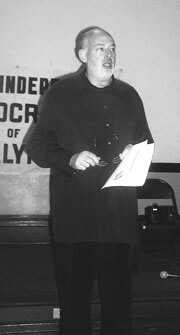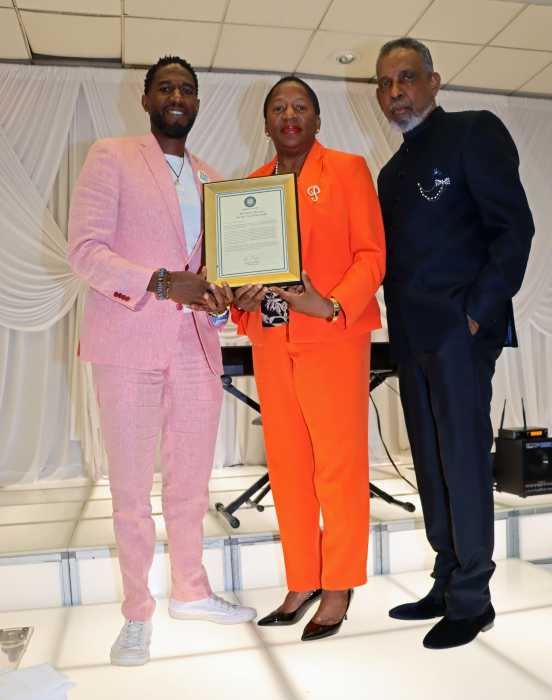Democratic nominee ends speculation about waffling on gay military ban
U.S. Sen. John Kerry said he supports ending the ban on allowing gay men and lesbians to serve openly in the military after press reports suggested that a Pres. Kerry might not change that policy.
“I have never backtracked,” the Democratic presidential candidate said in response to a question from Gay City News at an August 24 campaign event at New York City’s Cooper Union.
Asked if he supported lifting the ban, Kerry said , “Yes.”
Doubts about Kerry’s commitment to ending the ban arose from comments he made in a June 24 interview with Army Times and from an August 24 story in the Washington Blade which cited the Army Times piece.
Asked what he would do about the current Don’t Ask, Don’t Tell policy, which forbids the military from seeking out homosexuals in the ranks and allows gay men and lesbians to serve as long as they remain in the closet, Kerry gave the Army Times an answer that was less than clear.
“Sit down with my lead commanders in the military and figure out whether there’s a way to put talented people to work without running into a confrontation with unit cohesion issues and other things that I respect and understand,” he said according to an interview transcript posted on the Army Times web site. “But it seems to me that we’re losing a lot of talent for our nation in interpretation, in intelligence, in a lot of different things. There must be a way for those people to serve somehow. I’d like to sit and talk with my commanders and see what thoughtful people could do to have the strongest military possible to provide for the security of our country.”
The Army Times, which is not affiliated with the military, wrote “Kerry has been evasive in the past on his position regarding homosexuals serving in the military. Asked to address the topic, he did not shy away, but also did not say he had made up his mind on the matter.”
Later in the article the reporter wrote, “But Kerry said he was not certain the policy should be changed.”
The Blade, citing the Army Times story, rendered Kerry’s response as “[Kerry] was uncertain over how to change the current military policy on gays without disturbing ‘unit cohesion’” and added that the Army Times “said Kerry indicated he was ‘not certain’ the policy should be changed.”
The Blade story went on to cite a 2000 Boston Globe interview with Kerry in which he supported allowing the military, under limited circumstances, to weigh sexual orientation in decisions on assignments.
Kerry has been more definitive in the past. He was one of 12 senators to vote against Don’t Ask, Don’t Tell in 1993 and he testified against it during a Senate hearing then.
“John Kerry has been one of the most vocal, if not the most vocal, supporter of lesbian and gay service members in the Senate,” said Steve Ralls, spokesperson for the Servicemembers Legal Defense Network, a group that represents queer service members. “The way I read his comments in the Army Times is that lifting the ban is something that would require the support of the military.”
Ethan Geto, a longtime gay and Democratic Party activist, was particularly incensed by the Kerry statements in both stories and wrote to friends in an August 21 e-mail that if Kerry did not renounce his position “all bets are off.”
Geto, president of Geto & de Milly, a lobbying firm, has raised money for Kerry, organized volunteers for his campaign and made a number of mainstream and gay press appearances on behalf of the candidate.
The reference to “unit cohesion” as a reason to maintain the ban is especially offensive to many gay men and lesbians, including Geto. That rationale asserts that just the presence of gay men and lesbians in the military would disrupt operations. Unit cohesion implies that gay men or lesbians are “loathsome to other members of the military” and it sanctions “the worst homophobic attitudes in society,” according to Geto.
After reading the interview transcript and learning of Kerry’s comments to Gay City News, Geto was satisfied that Kerry was standing by his earlier position on the ban.
“Looking at the actual text it’s not as egregious as I thought it was,” Geto said “My goal here is to get him on the record saying he was unequivocally supportive of repealing Don’t Ask, Don’t Tell.”



































